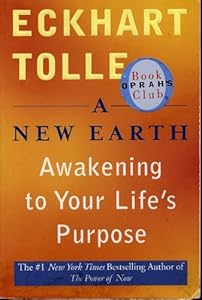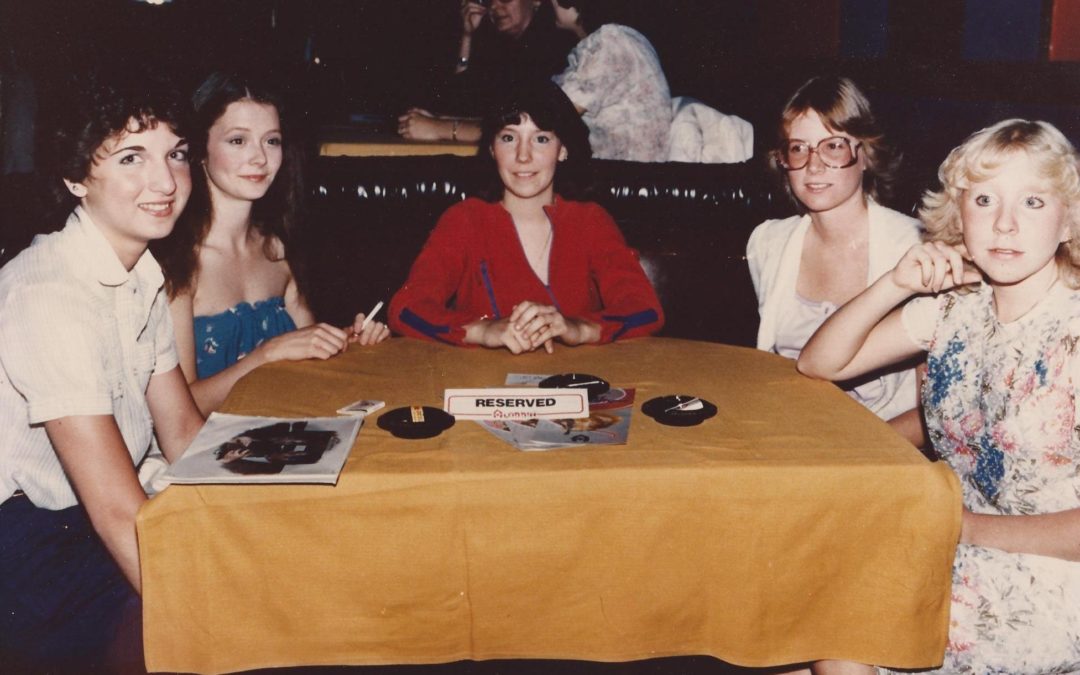
The whispers of addiction inside my characters’ heads are no different from the real-life echoes of a needy ego. Ekhart Tolle’s “A New Earth” brings presence to light.
Click. Flick. Inhale. Ahhhh …
Hailey and Robin are still puffing away at their “smokey treats” as they run down the rivers in my novel “More Than You Think You Know.” I, however, have recently packed up.
Hold the accolades. It’s only been six weeks. And it’s only through the grace of God, like a Christmas gift from the universe or a New Year’s resolution come early, that it happened. This quitting desire, when it washed over me, was pure joy. There was no struggle. It was completely different from previous attempts. I’m still surprised. I’ll always be profoundly grateful.
I grew weary of finding the cigarettes; wondering what kind of cigarettes to buy; did I have enough cigarettes; where would I smoke the cigarettes; who would judge me when they saw me buying the cigarettes; who would judge me while I was smoking the cigarettes; how many cigarettes had I smoked that day (I made hash marks on the calendar); all the self-recriminations brought on by the cigarettes. I didn’t want anyone in my Yoga classes to see me smoking. I didn’t want my nephews to see me smoking, or any kids, for that matter. I’ve crushed out hundreds of cigarettes prematurely because “somebody was coming” who shouldn’t see me smoking.
Cigarettes took up too much space in my head.
There have been a few crabby episodes; the supposedly mint-flavored nicotine lozenges taste like ash pellets. If I try to talk while one is dissolving under my tongue I get hiccups. At those times I remember that long-time smoker and accomplished thespian Lauren Bacall said that the only way to get rid of a bad habit is to stop doing it.
Most days are cheerful with no regrets. I smile and say to myself “I’m free.”
Two prima donnas – Donald Trump and a local legend-in-her-own-mind frenemy who shall remain nameless – also inspired me during the first week of a butt-free existence.
The passive-aggressive girlfiend had once commented condescendingly to another friend and me as we snuck outside for a smoke: “Oh, poor girls. I gave that up years ago. Six days is the charm. If you can go six days, you’ll make it.” She smiled her superior smile.
I try to never think of her, but since I used “six days” as a mantra I suppose I owe her a thank you (possibly a mental note will suffice).
A few “Apprentice” seasons ago The Donald loftily pronounced: “Successful people don’t smoke.” He fired a contestant in part for his tobacco habit (as I recall, the Young Lion chewed snuff). Derisive snorts at the TV screen aside, Trump’s “success” comment hit the mark.
I still crave a smoke from time to time. I tell myself it would taste like crap, take a deep Yoga breath and wonder how long the urge will take to pass. My husband, who quit 22 years ago, isn’t reassuring. “I had cravings for years,” he says. “Every once in a while I still do.” It makes me feel like an inconsiderate shit, smoking in front of him all these years.
For the moment, I am taking a leaf from my friend Deborah’s book. Deeply in love with a man who abhors cigarettes, (a la Aidan and Carrie on “Sex in the City”), she classifies herself as a “non-practicing smoker.”
The experts tell quitters to get rid of their triggers, but I’m not about to stop writing. I spent the formative years of my journalism career in a newsroom where you could smoke at your desk (and pour a shot of brandy in your coffee on the Saturday morning shift). In the early 1990s, the rules tightened. We’d huddle downstairs in the designated smoking room after deadline, concrete-block walls corralling our stress-relieving blue exhalations as the nearby Goss press that took up most of the basement rumbled to life. In the late 1990s, the building was declared “smoke free.” The contingent of smokers picked up a new habit, stepping outside to parry with delivery drivers waiting for their bundles. Editorial types mingled with smoking buddies from advertising, production, circulation and distribution, bonding over our leprous status.
When the paper sold to a West Virginia outfit, the new owners happened to pass through the back door as a crew stood by the loading dock, obtaining our post-deadline nicotine fix.
“Cyndi Perkins. We heard you were a very dynamic editor. Gosh, it’s a shame that you smoke,” one of the Suits remarked.
It was the first time somebody came right out and said that he thought less of me because of my habit. It stung. But it didn’t stop me from lighting up.
Over the next decade my grandfather died of lung cancer. My dad died of lung cancer. My uncle died of lung cancer. They all smoked, but they’d also worked construction in an era when inhaling asbestos and assorted other carcinogens was the norm.
My paternal grandmother swore “I’ll cut you out of my will if you smoke.” I think she pretended to not smell it on me. She never smoked, but she got emphysema.
Yeah, I know, the Russian roulette rationale doesn’t fly. Secondhand smoke hadn’t yet been labeled a killer, but it was wafting around everywhere, from hospitals to airplanes.
Marlboros were my daddy’s favorite. I’d smoked the light version of Cowboy Killers since I took up the habit in my 20s. Marlboro prices increased to $6 a pack over the years (they must be $10 or more in New York these days). Cost didn’t hang me up for too long. On the nearby Keweenaw Bay Indian Community reservation’s tribe-owned party store/gas station I found cheaper-by-the-carton off-brands reputed to taste somewhat like Marlboros. At two packs – 40 cigarettes a week – a 10-pack carton of Liggetts or Sonomas or USA Golds lasted me more than a month.
Down South, where states haven’t piled on the sin taxes, off-brand cigs like 305s don’t run more than $36 a carton. They’re so cheap in Kentucky and Tennessee that my husband joked he should start smoking again.
We all know why people keep smoking – they’re hooked – but why do we start in the first place? In “More Than You Think You Know” protagonist Hailey’s case, her violent, controlling husband told her that she couldn’t. Her habit springs from the perversity of human nature. When somebody forbids us to do something it becomes the first thing we want to do. Hailey’s cigarettes also symbolize independence, which is ironic because addiction is as much a prison as an abusive marriage.
For Captain Robin, who never met an “ine” she didn’t like, smoking is power, an attention-getting act of defiance and non-conformity. It’s part of her armor, integral to her persona.
For me? In this crazy world, a cigarette is often the only thing in your control.
“You’ve had rough day. You deserve a treat. Why deny yourself the only pleasure that is left in your life?” Surely smokers – and addicts of all stripes – can relate to this narrative from the inner voice of addiction as portrayed by Ekhart Tolle in “A New Earth.”
Or as my tee-totaling, straight-and-narrow, very funny buddy Mary puts it, “Come on! I’m good. Can’t I have just this one thing?”
Before quitting entirely, I tapered off. Every time I declined to “go out for a smoke” or went out and didn’t smoke, it changed the dynamic. Smokers love the company of other smokers. The camaraderie allows us to feel OK about what we’re doing, to feel connected in a way that invites meaningful conversation and true communication. Hailey and Robin would never have become so friendly, so fast, if they weren’t smokers.
This “smoking corner” mentality is documented in studies related to the Johari Window, a many-paned behavioral model that reflects what we hide and reveal to ourselves and others. It’s been studied in the context of human resources management – not that companies want their employees to smoke, but because the interaction between co-workers and colleagues in a smoking-area situation is beneficial to the overall company environment. They are looking for ways to subtract toxins from the equation: a breathing corner, if you will.
No vows or sermons this time. I won’t promise that I’ve puffed my last. At age 40 I wrote a cocky magazine column trumpeting my triumph over “smokey treats.” The cure wasn’t permanent; the experience was humbling. This time, I’m walking the way of the 12-step seekers, consciously, day by day.
My “More Than You Think You Know” characters aren’t following suit, although smoking is hurting Robin’s already precarious health (she has lupus). Hailey, self-conscious and a little vain, has noticed some very unbecoming wrinkles around her mouth. But she still looks forward to the rush and glow of that first morning cigarette. It’s a reason to get out of bed.
Maybe the “More Than You Think You Know” ladies will kick the habit in my next novel, “Yoga for Smokers.” We’ll see how the story unfolds.
Until then I say “Hailey and Robin, smoke ‘em if you got ‘em! Hell, smoke one for your ol’ pal Cyndi.”
Wouldn’t it be nice if the universe magically allowed one guilt-free, non-harming vice? What would yours be?


Congrats on hitting the 6 week mark. That is awesome!! Each day is a milestone to be celebrated. It’s hard to break a habit when you have no desire to get rid of the triggers. And why do we always want what we can’t have? Not just want, but want even more when we know we can’t have it. And even though we know it’s no good. Makes life tough sometimes. Looking forward to breaking a lot of bad habits next year. 🙂
And my guilt-free non-harming vice would be…Rum, of course 😉
Don’t be too GOOD, OK? Still looking forward to getting caught in a rum squall with you!
Rum squall? I LOVE the sound of that!! 😉